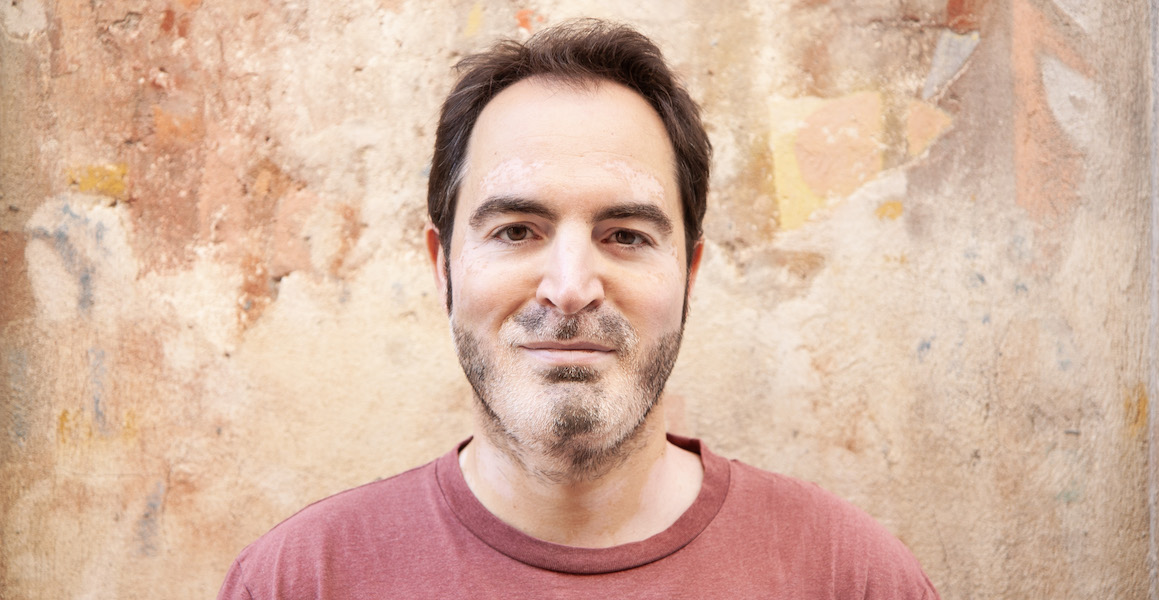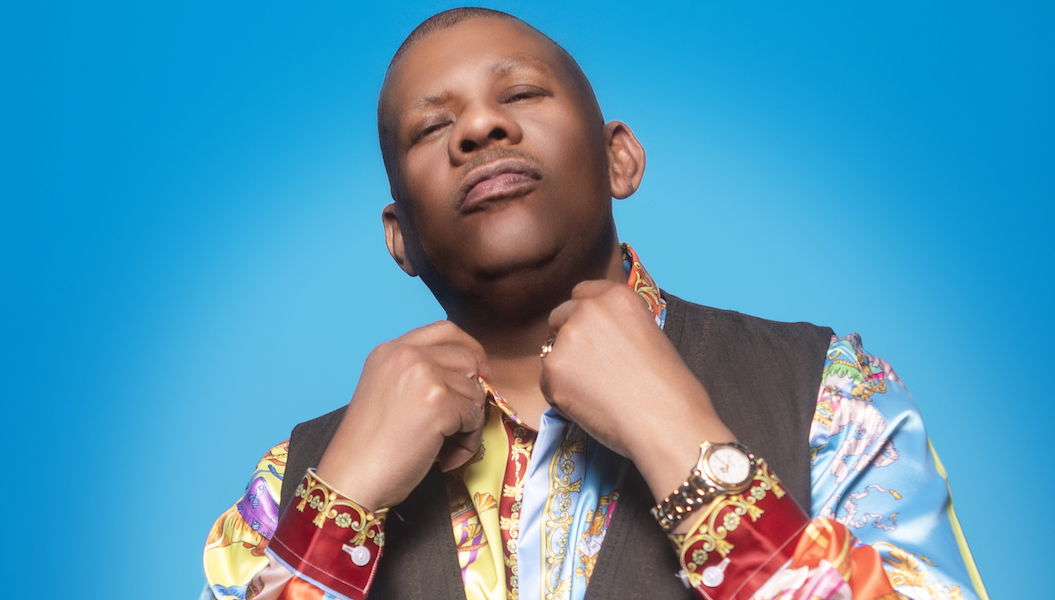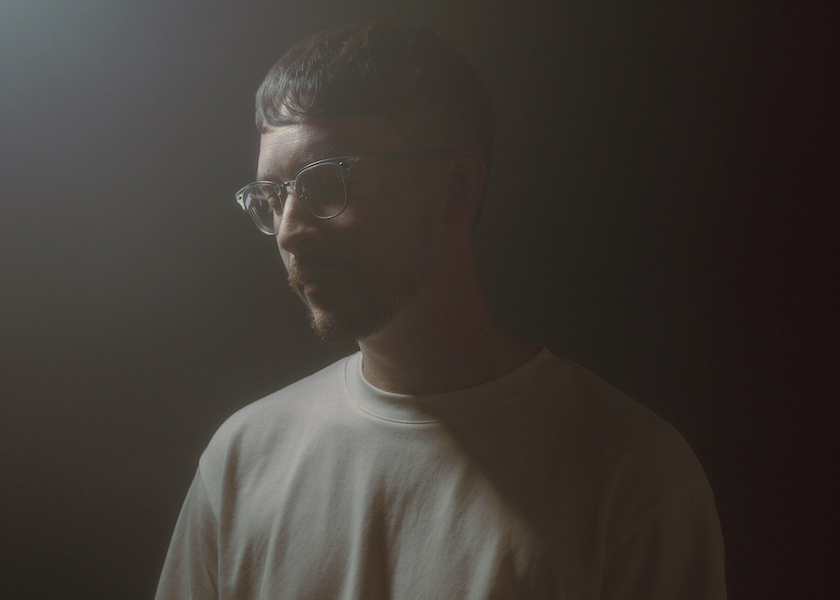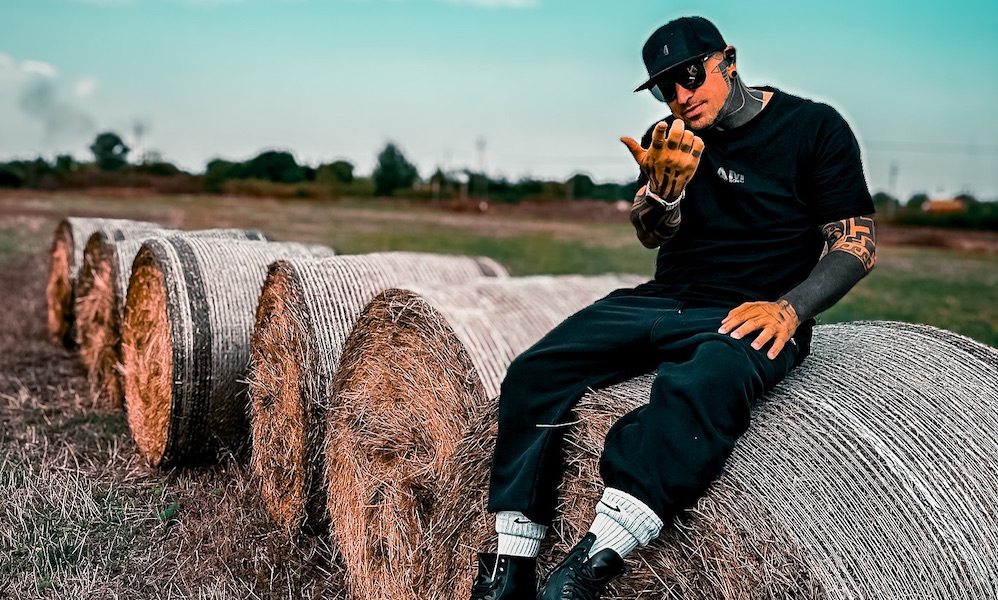Ever since his first exposure to House music in the 90s, Salin has thrown himself into producing, DJing and all facets of hardware discovery. His initial work on white labels and edits blossomed into the formation of Salin Records, which he has used as an outlet for his recent creative expressions. His sound is firmly established in house traditions, with expert groove lines and melodic sequences being utilized to full effect, but it is his love of equipment which has continued to fuel his desire to explore his sound to the fullest. His tunes are fun, fresh and emotive, bringing together the very best of the genre, with his own personal twist on things riding front and centre throughout his enriching discography.
Off the back of a deeply inspiring trip immersed in the beauty of Lanzarote, Christophe Salin returns with his latest LP – a softly spoken yet emphatic record that speaks of landscape, sun, sea and the finer things in the rich tapestry of life.
We sat down with the deep house don to discuss his new LP, his trip to Lanzarote, how his sound has evolved since the 90’s. and much more…
WWD: Hey Christophe, great to meet you! What’s happening in your world at the minute?
Hello WWD. Thank you for inviting me! I’m currently in a small town by the Mediterranean Sea in Spain. While I’m answering the interview questions, I’m sitting at a table with a view of the church and the old roofs of the town through a large window. It’s a magical place. A microcosm where there is everything, but not too much of anything. I have come here to reflect and find inspiration. A DJ mix by DJ Gregory, which he has just published on SoundCloud, is currently playing over a small loudspeaker. DJ Gregory is someone I really admire and whose music influences me a lot. So I’m very happy about this new mix.
WWD: Congratulations on releasing your debut LP ‘Ocean & Cliffs.’ Talk us through the release, are there any standout tracks?
Thank you. The album is about Lanzarote and the experiences I had on this beautiful island. ‘Volver’ is Spanish and means to return. I visited Lanzarote for the first time in December and fell in love with the island, so I wanted to return as soon as possible, which I did the following March. ‘Casa Del Agua’ is an old water house in the Famara Cliff, which can only be reached via a very exposed hiking trail. The track captures the impressions of the hike – beautiful, but also frightening. Each track tells of a special moment on the island. ‘Sorry, But I’m Not Always Happy’ was written when I was coming back from the beach, watching the surf instructors who always have a grin on their face and for whom everything is “no problem”. I’m not like that, and I came to the conclusion that I like myself the way I am 🙂 My favourite track is ‘The View’ because it captures the mood of the whole album and ends it so beautifully, like the sunset on the beach at Famara.
WWD: How did your trip to Lanzarote help shape the overall outcome of the LP?
I’m a very head-orientated person, so you have to take that into account when reading the story. Lanzarote is a very barren place. There are very few plants and what there aren’t at all are motorways, billboards and high-rise buildings. When I arrived in Lanzarote, I quickly felt very lonely, even though I was there with my wife Daria. I really wanted to leave. We then went on a hike. Nothing but rugged black rock and the ocean for hours. It was like a meditation hike. I realised that I define myself very much in terms of performance (which is the case for many of my generation). It’s almost as if you have to earn a license to live. On this hike, I learnt that life is a gift. You don’t have to earn it, you have to accept it as a gift. This newfound freedom led me to develop around 20 musical sketches in a short space of time on the small studio I had brought with me (laptop, audio interface, midi keyboard, headphones, Elektron Syntakt). Later, in my studio in Lübeck, I took these sketches further and completed the album ‘Ocean & Cliffs.’
WWD: You’ve been making music since the 90’s and releasing music for nearly a decade now, how has your sound changed and evolved since then which has led you to this point?
My sound has changed a lot, and very consciously. I had no musical training. I studied sound engineering at the SAE Institute, but I had no idea about music theory and hadn’t played an instrument. I was very dependent on samples. I didn’t like that, I wanted to tell my own stories, create my own worlds. So I took music theory courses and learnt to play piano and bass. I also took some online courses on music production (Stimming, Robert Babicz, Hannes Bieger). All this has changed my music a lot and brought me to a point where I call myself a musician, which I didn’t dare to do before.
WWD: For those who are just discovering your music, what do you hope they feel or experience when they listen to your productions?
For me, it’s always about taking the listener on a journey, creating a time-out from constraints, worries and fears. For me, house music is a place where you can be yourself. You can leave everything behind and just enjoy the moment. I try to create this place with my songs, but also with my mixes.
WWD: Can you describe the connection between your music and your German roots, and how they continue to influence your music today?
When I started buying my first records as a teenager, the ‘French touch’ was at its peak. Daft Punk released ‘Discovery,’ DJ Gregory, Bob Sinclar & Martin Solveig released great music with the Africanism project. This is music that influenced me a lot. Much later I became aware of artists from Germany, such as DJ Koze & Stimming. For me, these two are outstanding examples of the symbiosis of house and techno. I love the warmth and positive vibe of house, but also the structure and clarity of techno. The intersection is what interests me. The warmth has its roots in New York and France, the structure and sound design in Germany.
WWD: Can you share some insight into your creative process when producing music? Do you have any particular rituals or methods that help you stay inspired?
Unfortunately not. However, I believe that continuity is the most important thing. I try to make music every day – sometimes it’s sound experiments, sometimes piano exercises or analysing songs. For me, producing music is a craft. You have to master your tools. In order to develop songs, you need two things: a story that you want to tell and a clear head, free from constraints and fears. That’s not easy to achieve and one of the reasons why I’m here in Spain.
WWD: We hear you like your hardware, can you enlighten us on any notable gear used on this album?
It’s a bit strange. On the one hand, I’m a bit addicted to new equipment and often find access to new ideas through hardware, but on the other hand, I usually build the tracks on my laptop. It’s often the fact that hardware has a dedicated knob for each function. For example, I bought a very good hardware compressor. You can just feel when the sound is right when you fine-tune the controls. Once you’ve internalised this feeling, it’s easier to use a compressor plugin because you’ve made a connection in your head and you know what you want to work towards. I bought an MPC3000 years ago to understand the workflow and understand how many tracks from my youth, which I still think are great today, were created. Understanding the MPC has changed the way I use Ableton Live. I feel the same way with Digitakt2 at the moment. – There are two tracks on the album that are based on my two favourite devices and for which I really can’t think of an alternative plug-in. The first is the Moog Matriarch, on which I patched pretty much every sound for ‘The Edge’ and then my beloved MFB Tanzbär, which provided the beats for ‘Sorry, But I’m Not Always Happy’. I recorded all the shakers and small percussion in my studio through a Neumann TLM-103, or a Shure SM-57. This gave me the opportunity to solidify my very own signature sound.
WWD: As someone deeply rooted in the Deep House scene, what state is it in right now? What notable artists are emerging?
I’m in the process of finding out exactly that. For a while, I’d only been paying attention to studio skills and not so much to what’s hot or who’s making great music. I’ve been listening to more music from Brazil or Prince than deep house. My current impression is that there’s a lot of repetition of repetition and that deep house is often very backwards. I’m actually often afraid that I’m too stuck in the past myself. We tend to heroise the past. We probably always think the music we listened to when we were 20 is the best because it was exciting and we were discovering everything for the first time. Genius Of Time / Dorisburg / Arkajo, Soela, Flabaire are doing great things. DJ Koze has created a great album together with Rosin Murphy. You can’t miss the hype: Afro-House.
WWD: When you are not busy with music, what might we find you doing?
I love going jogging and doing yoga and I love cooking. Cooking is a hobby that connects me a lot with my wife (Daria). You wouldn’t necessarily recognise me for yoga and jogging, but you can see my love for good food. (hahaha)
WWD: Finally, what do you have coming up in the next few months? Feel free to mention anything!
I hope that I can find inner peace and create new music as free as possible from influences (by that I mean not imitating anyone) and have a lot of fun in the process. At the moment, however, I don’t know whether it will be a new album or more of a club-ready EP. My aim is to be authentic, which isn’t always easy with all the media that’s bombarding us. To be authentic, you have to know who you are, where you come from and where you want to go. Not that easy.
WWD: We can’t wait to hear it, either way. Thanks for the chat, Christophe!
‘Oceans & Cliffs’ is available here






